

Leaders play a vital role in carrying out an organization’s mission and vision, influencing culture and guiding team members to achieve important goals.
Over this last year, the Department of Pediatrics has identified critical leadership opportunities and recruited dynamic, forward-thinking individuals to fill them. Some roles are new, some are reimagined to better meet department needs and others are replacement positions. The talented faculty chosen for these roles bring robust experience and new perspectives to help guide the department into the future while navigating modern challenges in pediatric medicine.
Nationally, fewer medical students are choosing pediatrics as a specialty, and around 10% of pediatric fellowships remained unfilled in 2023. Across the U.S., many hospital systems grapple with financial limitations, including challenges in securing grant funding. Physicians sometimes feel overworked, stressed and unfulfilled, leading to fatigue, burnout and attrition.
Texas Children’s Hospital and Baylor College of Medicine have a vision and strategy for overcoming these challenges to strengthen and advance the Department of Pediatrics now and in the future, which includes applying forward-thinking, integrated models of clinical care, a focus on well-being and reimagining research, innovation and discovery.
Our new institutional leaders are:
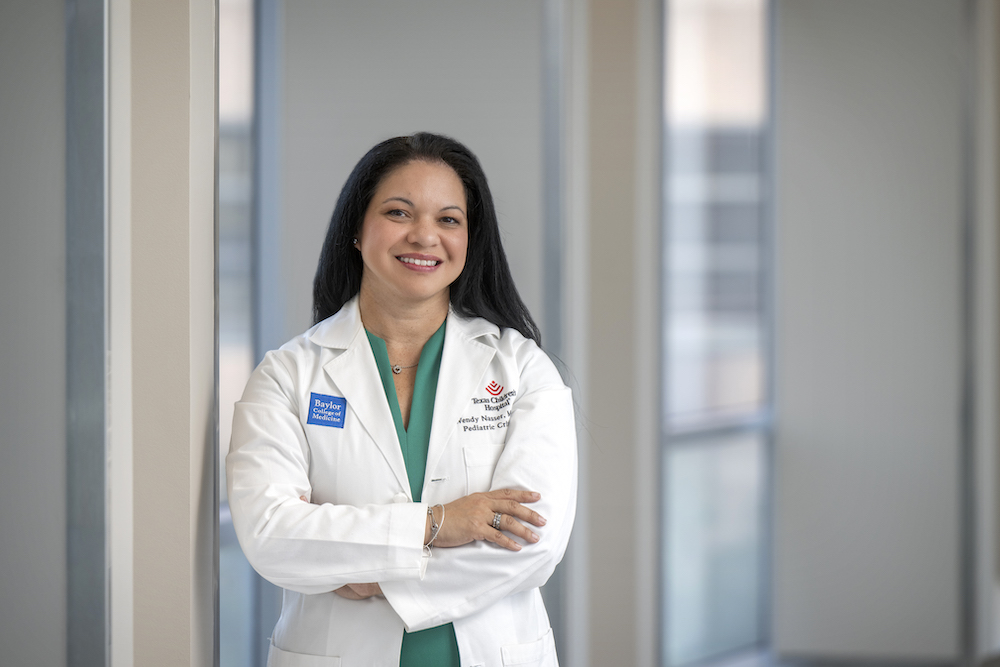
Wendy Quiroz Nasser, DNP, APRN, CPNP-AC/PC
Associate Vice Chair, Advanced Practice Providers
The Department of Pediatrics at Baylor College of Medicine includes around 150 Advanced Practice Provider (APP) faculty (physician assistants and nurse practitioners) who work alongside physician faculty, as well as independently, to deliver front-line patient care in the in-patient and ambulatory settings. Around half of the divisions in the Department of Pediatrics include Baylor APPs among their faculty, and they are highly valued members of the patient care team. While they work alongside physicians, their faculty development, educational needs and clinical training are distinct, and their identity as valued faculty members has become an important focus for the Department of Pediatrics leadership.
“Our goal is to bring our APP faculty together and help them to create a professional identity, to develop their clinical skills, encourage academic advancement and professional development and ultimately to retain our valued colleagues.” said Lara Shekerdemian, MD, MHA, Chair of Pediatrics and Pediatrician-in-Chief.
To accomplish this goal, Wendy Quiroz Nasser DNP, Assistant Professor of Pediatrics and the newly appointed Associate Vice Chair of APPs, aims to engage APP faculty and to partner with their division leaders as a resource for all aspects of professional development, continuing education and facilitation of their academic and research interests.
“It’s so important that APPs are respected and are adequately represented among departmental leadership,” Ms. Nasser said. “We partner with our physician colleagues and with each other to advance all mission areas. My role also gives APPs a broad perspective on needs across the institution. We can now examine where, systemwide, we have gaps in service, need more education or have opportunities to collaborate and align.”
Ms. Nasser joined Texas Children’s in 2000 as an ICU nurse and later served as a transport nurse. She later joined Baylor faculty as a pediatric nurse practitioner in the Division of Critical Care medicine, board-certified in both primary and acute care. In 2018, she earned her doctorate in nursing practice. Prior to becoming Associate Vice Chair, she served as the Director of the Critical Care Medicine Advanced Practice Providers and Associate Chief in the Division of Critical Care Medicine.
“Ideally, my leadership position should help grow APP leadership throughout the institution,” she said. “My goal is not to have leadership sit on the shoulders of only one person. There are so many incredible opportunities for our co-workers, and our growth potential as faculty and providers is endless.”
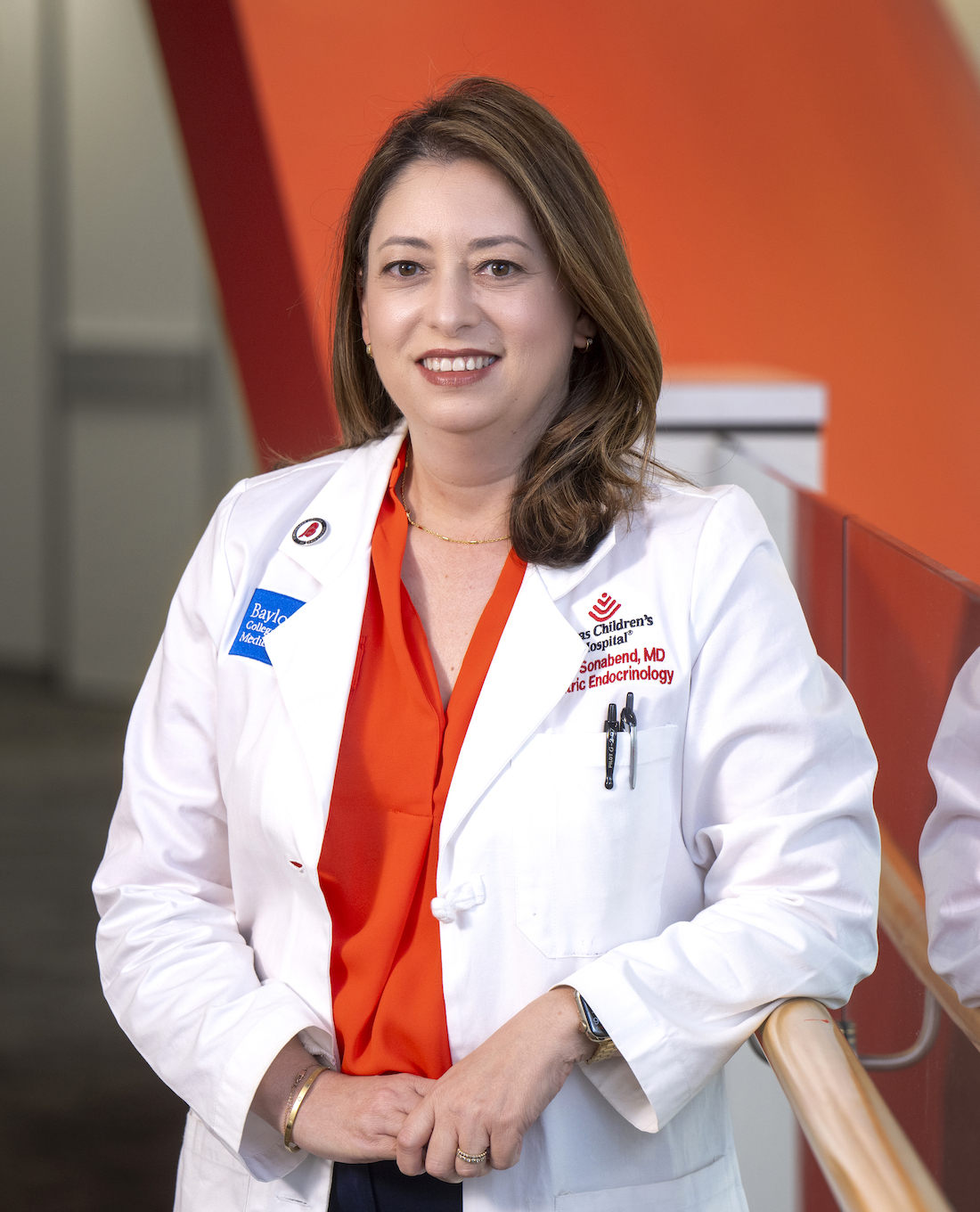
Rona Sonabend, MD
Associate Vice Chair, Ambulatory Affairs
At Texas Children’s, most patient encounters are on an outpatient or ambulatory basis, and occur at outpatient clinics, community practices, specialty centers and urgent care centers. Ambulatory care is broad and robust, ranging from routine doctor visits and exams to chronic disease management, physical therapy, rehabilitation and infusion therapy. In a complex, matrixed and far-reaching hospital system with high patient demand and a competitive environment, it was clear that there was a need for a new departmental leader to work with subspecialists and hospital administration to improve access and re-imagine aspects of ambulatory care at Texas Children’s.
In her new role as Associate Vice Chair of Ambulatory Affairs, Dr. Rona Sonabend provides support and serves as an advocate for divisions and service lines that have an ambulatory component. Her responsibilities include engaging leaders, physicians and staff and bridging work silos. She seeks to identify a common landscape — challenges, threats, successes, opportunities and needs — and channel a collective vision and system-wide solutions for outpatient services.
Dr. Sonabend’s priorities include:
In Dr. Sonabend’s view, solutions that work for acute care management and inpatient care are different on the outpatient side.
“By practicing in the ambulatory space, I hope to assist in developing supported and sustainable solutions,” she said.
A pediatric endocrinologist and Associate Professor in the Department of Pediatrics, Dr. Sonabend serves as the Division Chief of Pediatric Diabetes and Endocrinology, a division currently ranked fourth in the nation by U.S. News & World Report. She is also the Associate Director for Quality for Pediatric Medicine at Texas Children’s.
“Enhanced solutions for our physicians, providers and ambulatory teams will help us to deliver improved outpatient care, leading to a proactive care delivery model that creates healthier populations and reduces costs to our health care systems,” Dr. Sonabend said.

Matthew Musick, MD
Associate Vice Chair, Inpatient Affairs
Texas Children’s is the largest children’s hospital in the nation, with four inpatient campuses that now include North Austin. Patient care at all Texas Children’s locations is outstanding, and of the highest standards across our system. However, similar to ambulatory care, a need was identified for overarching medical leadership of inpatient operations to ensure consistent practice, collaborative learning, seamless communication and the highest quality care, regardless of a patient’s location.
That’s where Dr. Matthew Musick comes in.
On the inpatient side of the Texas Children’s enterprise, Dr. Musick, who is an Associate Professor of Pediatrics and Associate Chief of Critical Care, now serves as the Associate Vice Chair of Inpatient Affairs. In this brand-new role, he supports the work that occurs within Texas Children’s Emergency Centers and acute and critical care units across all four inpatient locations: the Medical Center, The Woodlands, West Campus and North Austin.
Similar to his counterpart Dr. Sonabend in ambulatory care, Dr. Musick liaises between divisions and service lines providing inpatient care and hospital medical, nursing and administrative leadership. In his new role, he meets regularly with Dr. Sonabend as well as Dr. Jean Rafael, Vice Chair, and Dr. Tammy Kang, Executive Vice Chair of Clinical Affairs.
“The Texas Children’s system has grown so large that it can be challenging for Division Chiefs and other leaders to understand the level of detail required to help navigate both routine and urgent needs within all divisions, across our sites,” Dr. Musick said.
“My responsibility is to work closely with all leaders to spread awareness and understanding of needs, identify shared priorities, coordinate the efforts of many different divisions and service lines, ensure consistency in practices and assist in decision-making. Ultimately, this will result in the most efficient use of our resources, more robust patient management and timely, high-quality patient care.”
Additionally, a significant component of Dr. Musick’s role is to work with other hospital emergency management leaders to ensure organizational resilience by preparing for urgent scenarios ranging from natural disasters like hurricanes to viral surges and pandemics.
Arriving at Baylor for his critical care fellowship in 2008, Dr. Musick has since served as Medical Director of the Pediatric Intensive Care Unit (PICU) and was later named Associate Chief of Clinical Operations for the Division of Critical Care, a position he still holds. In these roles, Dr. Musick has gained much experience in managing the largest PICU in the U.S. through periods of unprecedented growth, introduction of new service lines and expansion to new locations, as well as a key role in coordinating clinical operations during the COVID-19 pandemic. His significant experience in these domains has also helped him forge relationships across the institution that are vital to performing effectively as Associate Vice Chair, Inpatient Affairs.
Originally, he planned to be an engineer while a student at California Institute of Technology. Although his career path changed, his enjoyment of problem solving remains.
“I call myself a ‘people engineer’ now. I really like the process of working with various people – identifying problems, getting a team together, hearing the perspectives of different clinicians and administrators and then finding a solution together in a way that keeps patients at the center of our considerations,” said Dr. Musick. “At a hospital system this large, teamwork and collaboration are so important – there are so many stakeholders that no one can make a decision or implement an idea on their own.”
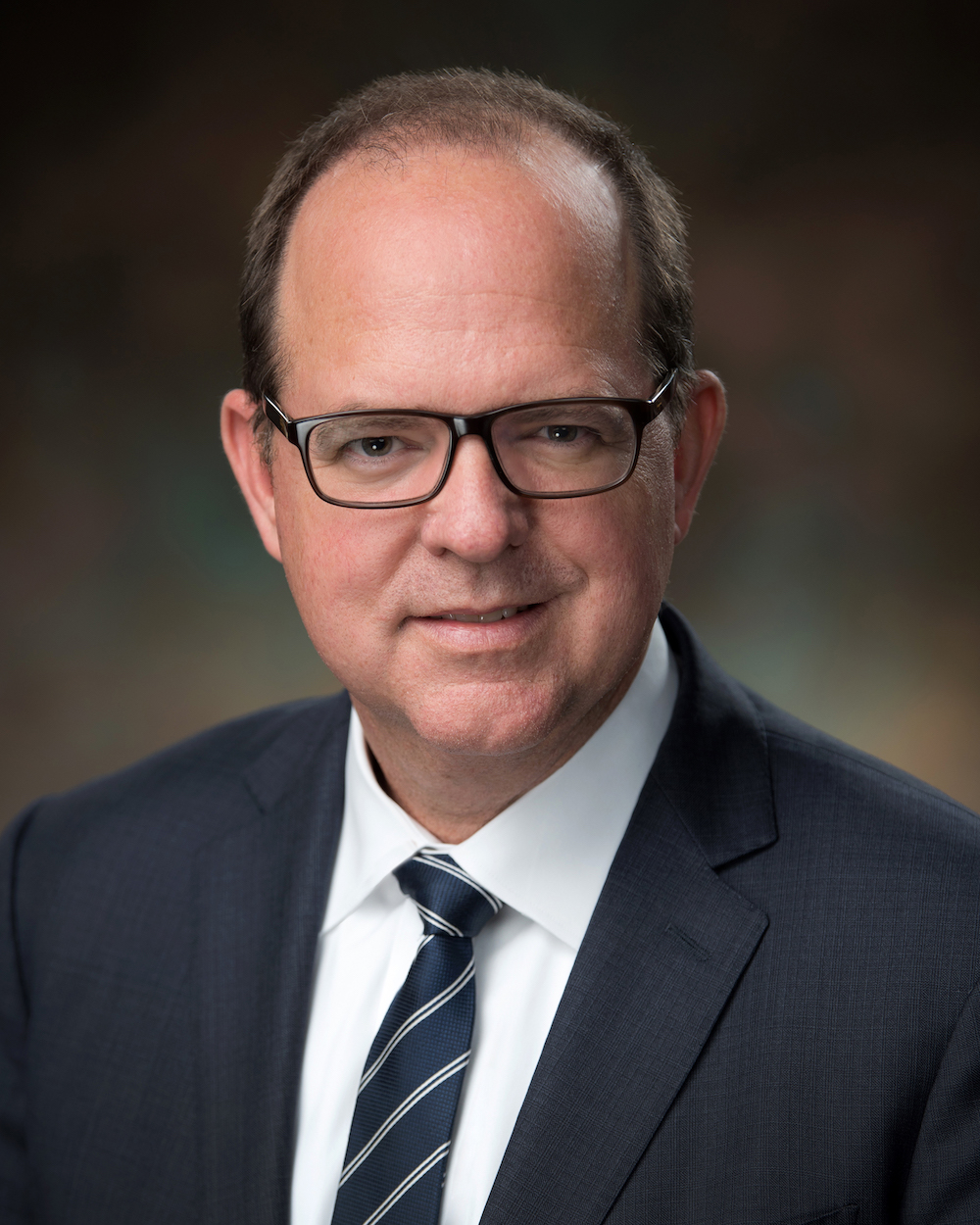
Carl Allen, MD
Vice Chair, Research
The newly appointed Vice Chair for Research in the Department of Pediatrics, Dr. Carl Allen, has a big strategic vision for research at Baylor and Texas Children’s: to work with colleagues and institutional leadership to create the premier pediatric research program in the U.S.
Dr. Allen, who is a Professor of Pediatrics in the Division of Hematology-Oncology, believes that research provides the foundation for the very best clinical care for all of our patients. Being at the cutting edge of pediatric research places Texas Children’s in a very special place, leading the field with basic, translational and clinical research aimed at discovering novel therapies and other state-of-the-art interventions to offer patients their very best chance of a healthy future. Research amplifies the impact of physicians on the next generation of patients in Texas and globally.
“It’s critical that an institution like ours offers the very best current patient care – but research lets us be even better than that in the future. Of course, this means that our research can impact the health of children not only in our care, but across the nation and globally,” Dr. Allen said.
With this vision in mind, he wants each researcher’s experience at Texas Children’s and Baylor to be:
To accomplish this, Dr. Allen seeks to create a research community across the institution to help break down silos, encourage the exchange of ideas and experiences, and develop collaborations. He wants to enhance the overall process and mechanics of performing research. Lastly, he plans to optimize the training pathway to engage and excite future researchers as early as possible – including encouraging the participation of physicians in residency all the way down to grade-school students – and help recruit, train and retain the best and brightest minds in the Department of Pediatrics.
“My role is all about fostering an environment where researchers can be as successful as possible. This requires a huge amount of infrastructure and funding via grants and philanthropic initiatives. It is also critical to offer a supportive environment, giving researchers the freedom to bring their own ideas, enjoy opportunities to collaborate with peers and lead research initiatives,” Dr. Allen said.
An active and highly funded researcher himself, Dr. Allen was recruited to Texas Children’s and Baylor in 2005 for his pediatric hematology/oncology fellowship. Inspired by the program that David Poplack, MD, developed, he remained on faculty and later helped create the Texas Children’s Cancer Center Histiocytosis Program and the Fayez Sarofim Lymphoma Program, both targeted toward gaining greater insights into little-understood pediatric diseases. Dr. Allen’s work with colleagues in these programs has transformed understanding of blood diseases and improved outcomes for patients.
Dr. Allen also established the position of Director of Research for the Global HOPE Program. This role is responsible for enabling the capacity for the institution’s partners in sub-Saharan Africa to participate in research and accelerate advances in treating cancer patients at these sites.
“My career is full of examples of what’s possible at Baylor and Texas Children’s – things that are not possible at any other institutions. In the nearly 20 years that I’ve been here, I can think of multiple examples of discoveries by Texas Children’s researchers that have translated into cures for patients that were not previously possible,” Dr. Allen said. “The next 20 years in pediatrics will be even more exciting with our unmatched potential of talented researchers and the commitment of our leadership to creating the best possible outcomes for our patients.”
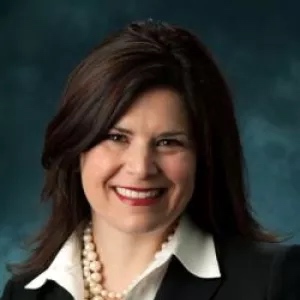
Lisa Forbes Satter, MD
Medical Director, Center for Research Advancement
The work of Dr. Lisa Forbes Satter complements seamlessly Dr. Allen’s vision of improving the research process while enhancing collaboration and knowledge sharing.
Texas Children’s and Baylor’s former Research Resources Office is now the Center for Research Advancement (CRA), a centralized hub for research that supports investigators by providing world-class expertise in clinical, translational and basic research. As the CRA’s new leader, Dr. Forbes Satter, Associate Professor of Pediatrics and Chief of Allergy, Immunology and Retrovirology, has redesigned the Center to ensure her team can successfully meet investigators' needs and provide pivotal support for their cutting-edge research — vital work that advances children’s health.
The CRA provides:
One of Dr. Forbes Satter’s top priorities is to foster seamless communication and strengthen connections between investigators and CRA staff. To accomplish this, she’s creating a pod system in which each medical division has a dedicated and consistent group of research assistants.
“What I bring to this role is that I am an investigator with projects along the research pipeline from clinical to basic research,” Dr. Forbes Satter said. “I was a consumer of research infrastructure as an investigator long before I became Medical Director. I understand how investigators use research infrastructure and how the institution should leverage it. Therefore, I can advocate for both investigators and the institution.”
After completing an allergy and immunology fellowship at the Children’s Hospital of Philadelphia and serving as a faculty member there for a year, Dr. Forbes Satter came to Texas Children’s in 2012 alongside her mentor, Jordan Orange, MD, who was recruited as Section Chief for Immunology, Allergy and Retrovirology. With this move, Dr. Forbes Satter became an inaugural member of the Center for Human Immunobiology, where she established her own lab and clinical research program. She is also the Director of the Jeffrey Modell Diagnostic and Research Center for Primary Immunodeficiencies, an international network of researchers in the immunology field.
Her research interests are primary immunodeficiencies of genetic origin — defects in patients’ immune systems that leave them unable to fight off infections sufficiently — and those in which the immune system cannot regulate itself. She evaluates how natural killer cells in the immune system may use immune-signaling pathways to develop and kill pathogens.
“The CRA has career clinical science administrators with unique expertise and dedication to patients, their families and the research enterprise,” Dr. Forbes Satter said. “No one does research alone — it’s a team sport. I’m fortunate to have a talented and dedicated team, and I’m here because I have a lot of wonderful people behind me.”
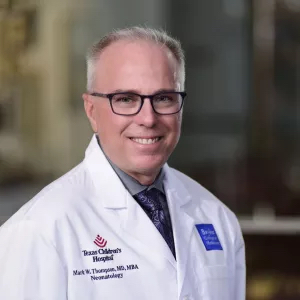
Mark Thompson, MD, MBA
Medical Director, Texas Children’s North Austin Campus Neonatal Intensive Care Unit
The newly opened Texas Children’s North Austin Campus has a new Medical Director to oversee its Neonatal ICU (NICU). After spending 41 years in the United States Army, Dr. Mark Thompson — a retired brigadier general – is accustomed to delivering care in fast-paced, demanding environments.
“The military, in general, has a great health care system,” Dr. Thompson said. “Training and growing professionally in this system has given me significant education and advantages. For example, I deployed twice to Afghanistan, where I treated sick and injured Afghan children. In these challenging surroundings, I learned how to deliver high-quality care even in less-than-ideal circumstances.”
After completing medical school at the University of Michigan, a pediatric residency at Tripler Army Medical Center and a fellowship at the University of Iowa, Dr. Thompson started his career as a neonatologist at Walter Reed Army Medical Center. Eventually, he advanced into the roles of Neonatal Division Director, Fellowship Program Director and Department Chair of Pediatrics at Walter Reed and Tripler.
Following these clinical posts, Dr. Thompson shifted into executive positions, assuming Chief Medical Officer and Chief Executive Officer (CEO) roles of U.S.-based Army hospitals and then working his way up to Command Surgeon and Regional Director of the Defense Health Agency, where he served as CEO for the Department of Defense health care system in Europe.
A desire to return to a more clinical role led Dr. Thompson to retire from the Army and join Baylor and Texas Children’s in June 2023. He says he found the transition to civilian work seamless because the Army, Baylor and Texas Children’s are all values-based, mission-focused organizations that share many of the same foundational values. These include loyalty to the mission, respect for others and the institution, selfless service and integrity.
“Being a pediatrician in the Army is valued and important, but medical care for soldiers and managing combat-related injuries is the priority,” Dr. Thompson said. “I’m looking forward to being part of a system in which kids and families are the most important priority. If you’ve been a pediatrician over the last several decades, you know Texas Children’s is an outstanding organization with exceptional people.”
As Medical Director, Dr. Thompson is responsible for the overall medical care of neonates in the NICU, managing a staff of neonatologists and APPs, facilitating the professional development of clinical staff at varying stages of their careers and performing administrative duties. He says he will also focus on establishing strong relationships in the Austin community and becoming part of the area’s referral patterns.
“We are fortunate to have Dr. Thompson leading our Austin NICU team,” said Kristina Reber, MD, Division Chief of Neonatology at Texas Children’s. “His exceptional leadership skills and breadth of clinical experience will be instrumental as we build our neonatal program in Austin.”

Rajaram Nagarajan, MD, MS
Medical Director, Texas Children’s Cancer and Hematology Center
Throughout Texas Children’s and Baylor, internationally recognized experts in their fields pursue cutting-edge breakthroughs to improve pediatric patient outcomes. Dr. Rajaram Nagarajan, Professor of Pediatrics and Texas Children’s Cancer and Hematology Center’s new Medical Director, brings a level of distinction and excellence befitting one of the largest, highest-ranked pediatric cancer and hematology centers in the U.S.
Dr. Nagarajan’s 20 years of experience as a pediatric hematologist-oncologist encompass an impressive 17-year tenure at Cincinnati Children’s. In addition to serving as a professor at the University of Cincinnati Department of Pediatrics, his leadership roles there included Co-Clinical Director of the Cancer Survivorship Center, Grant Chair for the University of Cincinnati Cancer Survivorship Grant and 13 years of service as the Medical Director of Oncology.
“I once thought I’d be a general pediatrician, but during my pediatric internship and residency at Medical College of Virginia, I met several families dealing with pediatric cancer,” Dr. Nagarajan said. “I was drawn to the relationships that develop between patients, their families and their oncologists. The lives of our patients and their families are unexpectedly disrupted by a cancer diagnosis. They are suddenly challenged with navigating unchartered territory and trusting a stranger with their life or the life of their child. It’s a privilege to be involved in the lives of these patients and their families.”
After completing his pediatrics residency, Dr. Nagarajan followed his interests in pediatric hematology, oncology and bone marrow transplantation and pursued a fellowship at the University of Minnesota. There, he earned a Master of Science in Clinical Research, with research focused on pediatric cancer survivorship. It is widely acknowledged that childhood cancer therapy can be associated with life-altering and life-threatening side effects that many patients manifest years or decades after the completion of therapy. Dr. Nagarajan sees patients at 5, 10, 15 and even 20 years after completing their cancer treatment. He evaluates each survivor to assess the appropriate level of medical surveillance to prevent and treat potential side effects based on their diagnosis and treatment plan.
As Medical Director at Texas Children’s Cancer and Hematology Center, Dr. Nagarajan’s initial priorities are to identify opportunities to improve operations and assess whether new programs are needed to enhance the quality of patient care.
“I am thrilled to have joined an amazing team at a leading institution for family-centered care and clinical research,” Dr. Nagarajan said. “With all the resources and talent in one of the very best cancer and hematology centers in the nation, I’m confident our team will be on the forefront of the next advancements in the treatment of childhood cancer and other blood disorders.”
Susan Blaney, MD, Director of Texas Children’s Cancer and Hematology Center and Division Chief of Pediatric Hematology-Oncology at Baylor, agrees. “Dr. Nagarajan’s vision and leadership will ensure the center continues to advance the field through extraordinary scientific discoveries and clinical translation to benefit each child with cancer or a life-threatening hematologic condition,” she said. “On behalf of all our faculty and leadership at Texas Children’s and Baylor, we are delighted to add him to our team.”